
|

|

|

|

|

|

|

|

|

|

|

|

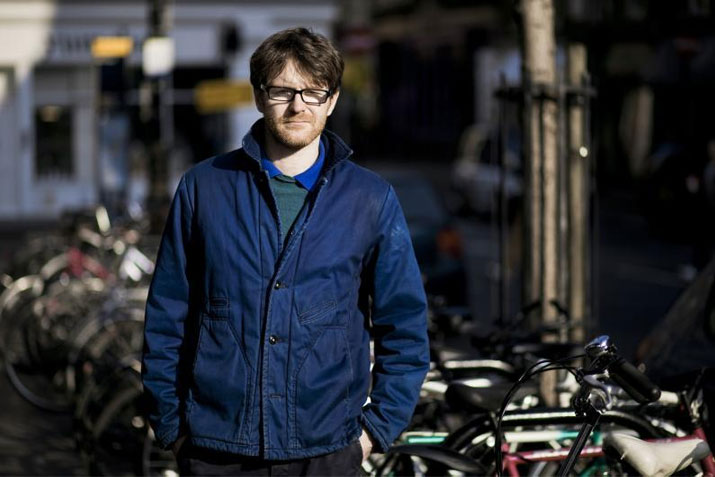
Having started off in cult "folktronica" group, 'The Beta Band', before moving his attention to film, John Maclean's status as a fully fledged film director is about to be realised. First coming to our attention with his low-fi mobile phone short, 'Man On A Motorcycle' starring a certain Mr. Fassbender, we were excited to see they had joined forces again for 'Pitch Black Heist' subsequently winning Best Short at this year's BAFTA's. Now in the midst of writing his first full length feature, we met with John to discuss difficulties of moving from short to feature.
Q: You're working on your first feature right now, how is that going?
A: I've been writing it for about a year already...
Q: Are you able to say what it's about? Has it got any connection to Pitch Black Heist – I can imagine that being stretched out to a full feature...
A: No it hasn't actually, I thought about that for a while but then I had another idea that I thought might be a bit easier because it doesn't rely on that one twist like Pitch Black Heist...
Q: I heard Michael Fassbender talking about the feature on the red carpet so I assume he's already part of it?
A: Yeah, well I think so - it would be great. I started working with him when he was shooting Tarantino, he wasn’t in the public eye but everyone knew he was going to be big. I got lucky when I met him.
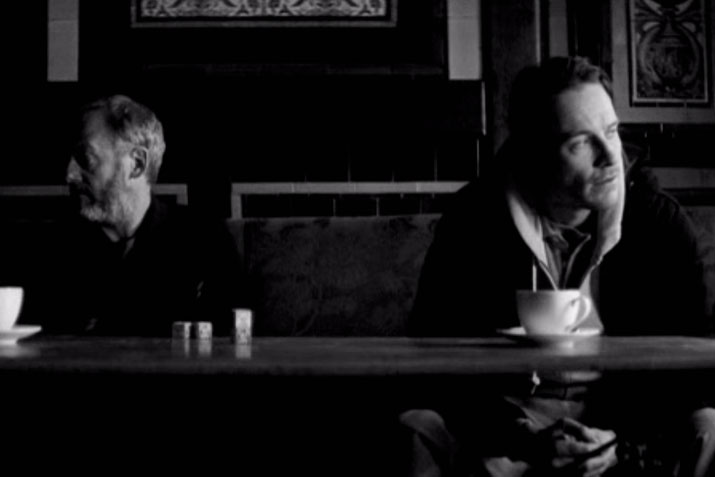
Q: You didn't always want to be a filmmaker – you started off in art and then music?
A: I did a bit of art and music and directed a few music videos but painting and film have always been the mediums that I loved most. With music I was always more interested in the visual aspects more than the writing.
Q: That's the BETA Band – you had quite the cult following...
A: We didn't make any money but we got to travel the world - it was definitely fun.
Q: Now that you've won the BAFTA are you quite intimidated by your next project?
A: Yeah, it's sort of hard to say. Apart from the one night of fun and having it on my bookcase as a constant reminder... it sort of gives confidence to the people that I'm working with already, I already had a team but it just means that we're all on the right track.
Q: Do you like the recognition that it's brought you?
A: As I said, I'm working with the same people as I was before, we all knew that the film was good and I guess we didn't really need the BAFTA to say that it was good, and then everyone got in touch afterwards – opportunists, production companies, commercial companies that I’m not interested in working with. All I'm thinking about is the script and that it needs to be good.
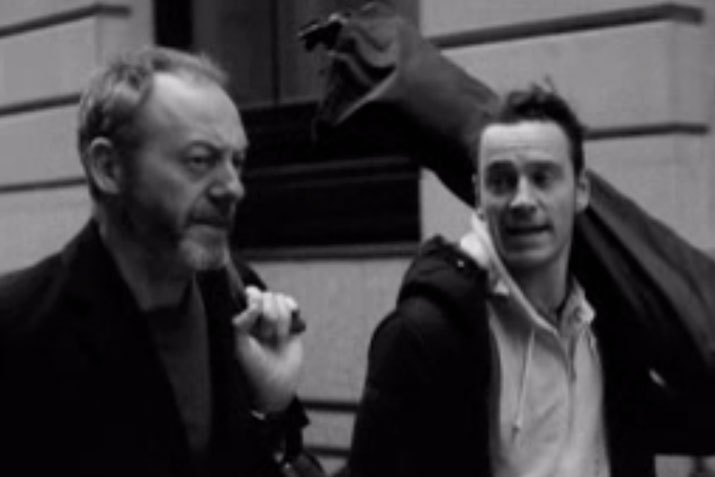
Q: I bet the mobile phone company that didn't fund you for Man On A Motorcycle are regretting it...
A: Yeah, I went through every department, all I wanted was a bit of support but I got nothing.
Q: You/re used to working low-fi equipment?
A: Yeah, and before that I made around 30 videos on my DV camera.
Q: I expect you'll be using more advanced technology on your next project?
A: Yeah, I shot Pitch Black Heist on film, so as long as you’ve got other people that know how use the equipment and I worked with a great cinematographer.
Q: Both of the films had a similar style – very simple, black and white, what is your thinking behind this?
A: or Man On A Motorcycle it was black and white because of the pixels – I mean it's different now but in 2008 we had to go to black and white. For Pitch Black Heist it just made sense for a heist noir.
Q: Are you going to use black and white for your feature? Is that something that you would like to carry through – your visual style?
A: Yeah, I think I will shoot it in black and white, I just feel comfortable using it, I'm quite comfortable with it and a lot of my favourite films are black and white. Probably the fact that The Artist has done so well has made it slightly easier for me to get funded, I've always thought for years that you almost have to earn to use colour, all of the directors that I love started off in black and white – I think once you can grasp that use of tone then when you move on to colour you treat it with respect, you make sure all the costumes and the set are themed in the right colour. There were a lot of great colour films in the 70's and you watch films now and there's no real adduct...
Q: How much do other films influence your work?
A: A lot, I watch films every day! Everything from the 20’s to now.
How helpful is it to work with a good actor like Michael Fassbender?
A: I hadn't really worked with actors before; I’d worked with my band-mates, and tried to get them to act… the first shot I did with Michael - the first time I’ve ever used an actor, he fell off his motorbike and walked towards the car and I just saw him get into character and I almost burst out laughing because I couldn't believe the way he turned, he was so un-self-conscious – I mean I'd worked with my mates for years and there’s always that element of them feeling self conscious or feeling stupid, but he was just – bang – it was quite impressive, extremely impressive.
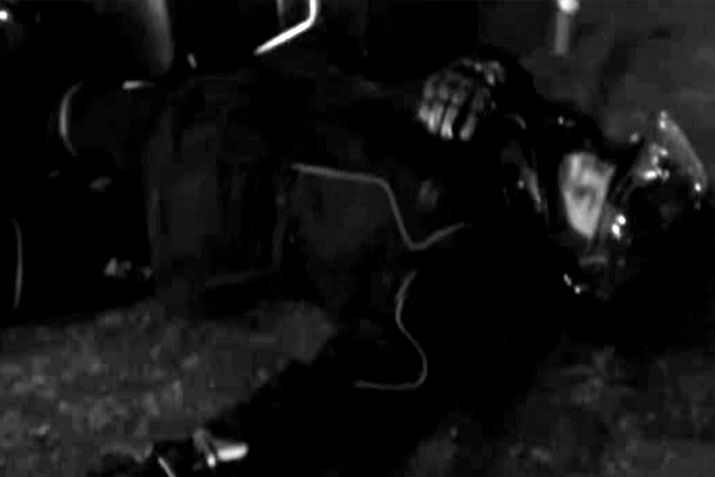
Q: Was that the moment that you felt you could properly pursue filmmaking?
A: (Laughs) Um, yeah when I edited that together and it started looking like a film, I thought... because up until then it had just been a bit looser, just music videos or stupid films with your mates, you don't have to really consider the edits as strongly as you do in a feature, so yes, in the editing process I started to think that it could actually work.
Q: I imagine the script writing process is more intense compared to a feature, how has it been?
A: Ah, it's had it's ups and downs.
Q: I know some people go off into a hole and become reclusive...
A: (Laughs) Yeah, I might do that towards the end! But at the moment I’m working with people like the script editor and some moments you think, ‘Wow, I’ve got a great film here!’ and then other moments you think, ‘Wow, I’ve got nothing, it’s a mess!’ It’s sort of a fine line for a while.
Q: Do you not only realise when you’re starting to film it whether it’s a good film or not?
A: Hopefully not, hopefully I can see that in the script because the amount of money it costs to make any film, I think the script needs to be vetted, so when I give it to Film4 or I give it to my agent who I trust, and they come back and say if it needs work then I will go back to it and work some more.
Q: Do you hope to always work on your own scripts?
A: No, I’d love to work with someone else. Again, the only reason that I wrote both short films was because no one handed me a great short film treatment – if they did I probably would do it,
Q: Do you not like the ownership of having your own script?
A: Yeah, I mean it’s a build up of confidence. If five years ago someone said I’d be writing a feature film, I’d think it was crazy. If I told my old English teacher – I was borderline failing English for years – that I was writing, that would be pretty crazy. So, yeah, it’s just a building of confidence to think, “Well, actually, yeah I can write a feature film.” it’s just a question of doing it.
Q: Where would you like to see your career going, now that it’s happening..?
A: Just if I could make the feature film that I’ve got in my head then that would be good enough for me. I always thought that the ultimate dream, because I used to work in cinemas when I was at uni, was to have your film projected on to a screen that size, so that’s a kind of goal, but as soon as you got that then you may run to another goal. You get directors complaining because they’re not Oscar-nominated and it just keeps changing. So film projected on a big screen would be the goal.
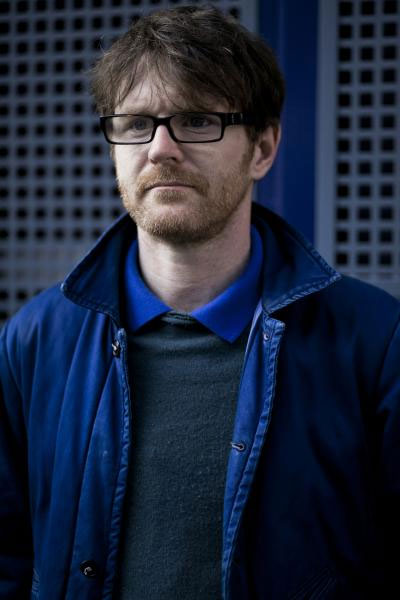
Q: Did you enjoy the BAFTA’s?
A: Yeah, it was really fun. It was very nerve-racking beforehand and luckily they do the shorts quite early on so I could just sit back and relax. It’s fun being in a room where nobody isn’t famous. I was only star-struck when I met Scorsese and I managed to shake his hand and couldn’t say anything.
Q: What is it about filmmaking that draws you in?
A: I’ve been watching films since I was a kid, since my dad took me to see Star Wars. It’s just a magical thing, I still have a romantic notion about it, kids these days downloading bits of films and then fast-forwarding, I just still feel that the cinema still has a place.
Q: Your film does have a classic, old style to it, in it’s simplicity, is that the sort of thing that you enjoy?
A: Yeah, I do actually, I think that the best films are all old stories anyway, like I went to see Carnage the other day and that’s just an old story done in a new way and it’s great, it could be Chekhov or Shakespeare – it’s just people in a room, with problems.
Q: Would you like to head to Hollywood – if you were offered a good feature with an amazing cast?
A: I think I’ve got that already (Laughs). I think to make the feature I want to make, I have to be in control, and you stay in control by keeping the budget low. I don’t even think there is such a place as Hollywood, I think it’s just finding the right people you want to work with – they might be American, they might be Australian.
Q: You wouldn’t want to do a Christopher Nolan and go over there for a franchise?
A: I don’t think so because I think he’s a different director, I think they’ve got a lot of experience, maybe, in advertising and commercials and I think you need that experience to have the confidence to direct those kinds of films, whereas my experience comes from more music and low-fi, so I’m much more confident with small stories…
Q: Who is your IDOL?
A: It’s hard to have one. When I was young the first person that made an impression was probably Andy Warhol, because I had friends that were just musicians, or just artists, where as I always thought that I was better at putting those people together, or somehow being involved in creating a group of people which is what we tried to do with the first band – The Beta Band. Also Scorsese from a filmmaking point of view.
